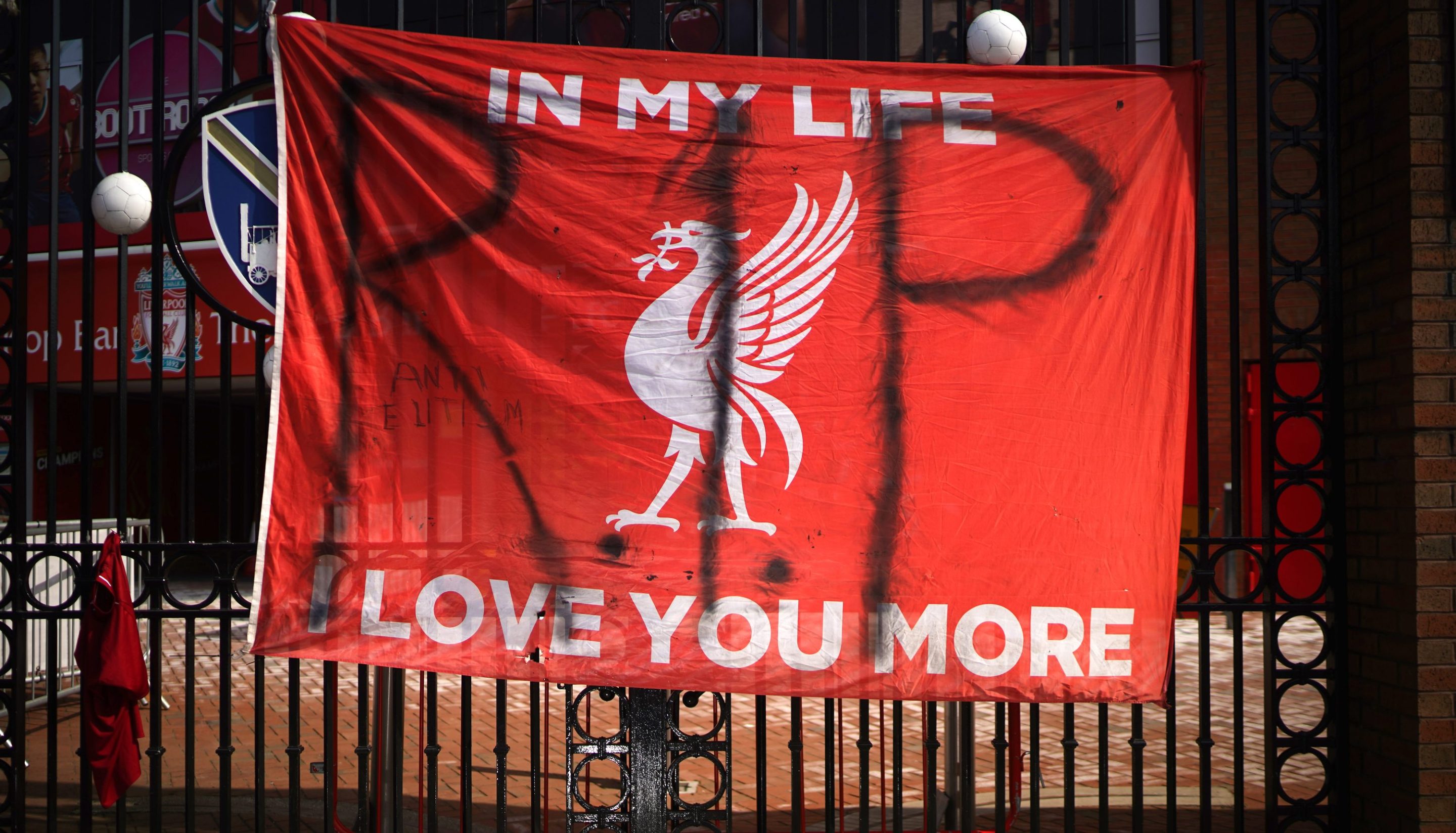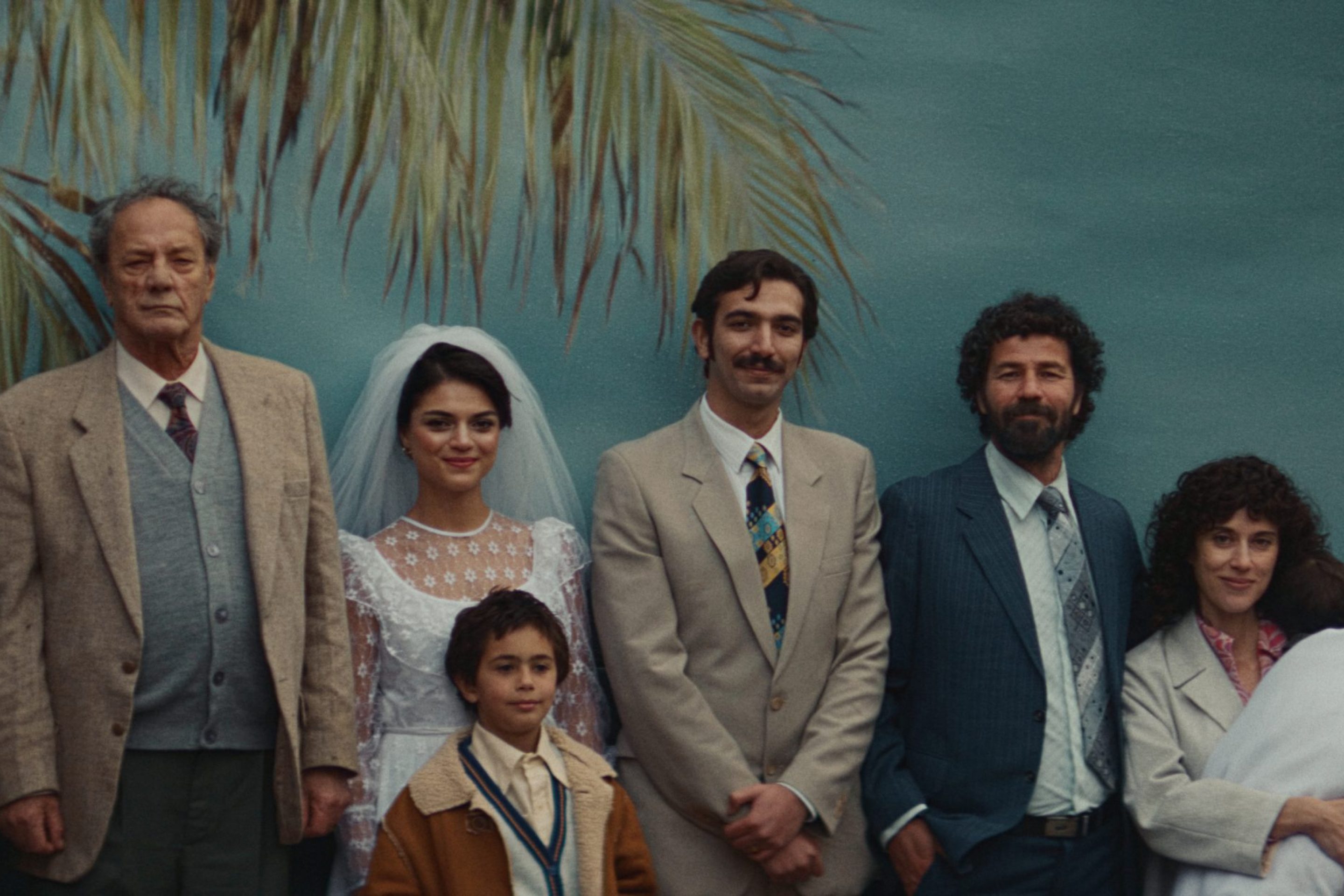The European Super League has felt like an inevitability for some time now. Sunday's announcement of its creation was a surprise only for its timing. It's no shock that many of the richest clubs in the world wield enough power and money to do whatever they want, PR and legal repercussions be damned. Why, then, does the whole thing seem like a big Jenga tower one shaky hand away from crashing to the floor?
The clubs appear to have underestimated both the united opposition to the idea of a Super League and the importance of such opposition. In the 36 or so hours since the Super League's announcement, dissent has cropped up from essentially every corner of the soccer universe, from fans to players to coaches to Boris Johnson (???) to the Lesser Evil Coalition of UEFA, FIFA, and the various leagues both involved and not involved in the proposed tournament. The general message seems to be that it's 12-against-all, and now it's a matter of figuring out whether the "12" or the "all" have more power.
We've previously outlined some of the potential tools that the powers-that-be could deploy to make life as hard as possible for the 12 clubs, and perhaps that will be enough if UEFA and FIFA stick to their guns and kick these clubs out of every current competition, threaten bans for players in international competitions, and/or sue the clubs for breaking away. Real Madrid president Florentino Pérez, one of the key architects of the Super League, expressed his defiance and fearlessness in the face of some of the threats facing Super League clubs in an explosive interview on Spanish sports TV show El Chiringuito de Jugones:
Florentino Perez to Chiringuito: "Players banned from international competitions and National teams according to UEFA? Don't worry, this will NOT happen. They won't be banned if they join #SuperLeague". 🚨
— Fabrizio Romano (@FabrizioRomano) April 19, 2021
Florentino Perez to Chiringuito: "President Ceferin insulted Andrea Agnelli today, it is not possible. It's crazy to discuss a president of a world club like Juventus. This is something unacceptable, UEFA must change, we don't want a president who insults other presidents". 🚨
— Fabrizio Romano (@FabrizioRomano) April 19, 2021
Florentino Perez to Chiringuito: "Real Madrid, Manchester City and Chelsea as the other clubs of #SuperLeague will NOT be banned from the Champions League or domestic leagues. 100%, I'm sure. Impossible". 🚨
— Fabrizio Romano (@FabrizioRomano) April 19, 2021
It's not surprising that non-Super League clubs and leagues have come out strongly against this. There's no reason to believe that the rich getting richer will trickle down in the way that the Super League clubs claim, and so those smaller clubs are making their voices heard in whatever way they can.
Just to grab a couple of examples, Leeds United players took the field prior to their Monday matchup against Liverpool wearing shirts that said "Football Is For The Fans" and "Champions League: Earn It." Leeds's social media also referred to Liverpool as the "Merseyside Reds" during the match, a nod to the Pro Evolution Soccer video game series, which uses fake names for clubs it does not have the rights to. Wolverhampton took a similarly trollish approach on social media, posting a TikTok mocking the Big Six of England. Some of those moves might seem a little petty—especially ones aimed at the players and managers of Super League clubs, all of whom have said they were just as blindsided as everyone else by the announcement—but any sort of embarrassment reinforces how isolated these large clubs are.
The soccer pundits also seem to be together on calling this a bad idea, which is perhaps more surprising, given that soccer punditry, particularly in England, varies wildly in quality and ideology. Gary Neville has gotten the majority of the attention, and rightfully so, for his impassioned rebuke of the Super League, and former players like Manchester City's Micah Richards and Manchester United's Roy Keane, Liverpool's Jamie Carragher, and Tottenham's Gary Lineker have also registered their own disgust. It surely helps that these pundits are all former players, who understand on a personal level the effects that a move that risks devaluing the wide appeal of soccer would have.
Most impactful, though, has been the slow trickling of opposition coming from those players and managers at the Super League clubs. Liverpool manager Jürgen Klopp said both before the announcement and after the Leeds match that he is against the idea, while on Monday, Liverpool vice-captain James Milner said he does not like the idea and that he hopes it does not happen:
🗣 "I don't like it, I hope it doesn't happen."
— Football Daily (@footballdaily) April 19, 2021
James Milner was asked about the introduction of the 'European Super League' pic.twitter.com/cvFAHbtjU9
There is also a report that Liverpool's captain, Jordan Henderson, is organizing a meeting with the other Premier League skippers to plan a response to the Super League announcement. It makes sense, too, that the players in England specifically would be against this. The country's soccer tradition treats these clubs not as businesses but as community institutions, ones that mean more to the city than a normal business would because the clubs were founded for the people and by the people. Liverpool, for example, was founded as an offshoot of Everton, which itself was founded in 1878 by the St. Domingo Methodist New Connexion Chapel as a way to let churchgoers play the sport year-round. The cultural roots run deep, and are much stronger than some slip of paper rich guys pass back and forth to each other that tells them a club "belongs" to them.
The dissent in England has not been isolated to Liverpool. Manchester City manager Pep Guardiola, never one to play nice, came out strongly against the idea of the Super League in a Tuesday press conference:
Manchester United striker Marcus Rashford has not spoken publicly yet, though he did post a tweet echoing United legend Eric Cantona's sentiment that soccer is a fan-driven sport, and that any decision made without the fans in mind is not a decision worth making. Rashford's teammate Bruno Fernandes also shared his opposition on Instagram. We're only three days past the Super League's announcement, but it does appear like there is a blanket refusal from those who actually play and manage in the sport to just accept it and move on.
Most of this likely wouldn't matter if the 12 clubs stick to their own guns and move forward with the tournament, but it appears that the cracks have begun to show there, too. Multiple reports say that there are two clubs—suspected to be Manchester City and Chelsea—already wavering on their commitment to the breakaway league. If the reports are true, and the clubs in question really are City and Chelsea, it would make sense. Those are probably two of the three best-funded clubs in the world—Paris Saint-Germain is the other, and all three earn the distinction by dint of having owners with more or less bottomless pockets—and therefore are under the least amount of financial pressure of Europe's biggest clubs. The reports of City's and Chelsea's second thoughts might not lead to anything, but the fact that disharmony is already registering inside the 12-club cabal can't be a good sign for the Super League, which will need a united front to stand against all of this opposition.
These are wild times, and it's possible that this week will take wilder turns yet. For now, the Super League has put in even starker relief what was always there: greed and self-interest, from all involved. There are no good guys here, but there are different levels of badness at play. UEFA and FIFA are never going to be the paragons of justice and morality, and part of their opposition to the Super League surely stems from being cut out of the deal. If there's anyone to trust here, it looks like it's the players and managers who actually put on the sport that lies on the precipice of peril. If their voices are to be believed, and if their convictions prove strong enough, then it appears that the Super League, so long a dark certainty in soccer's future and now its immediate present, will have a harder battle ahead of it than it thought it would.






